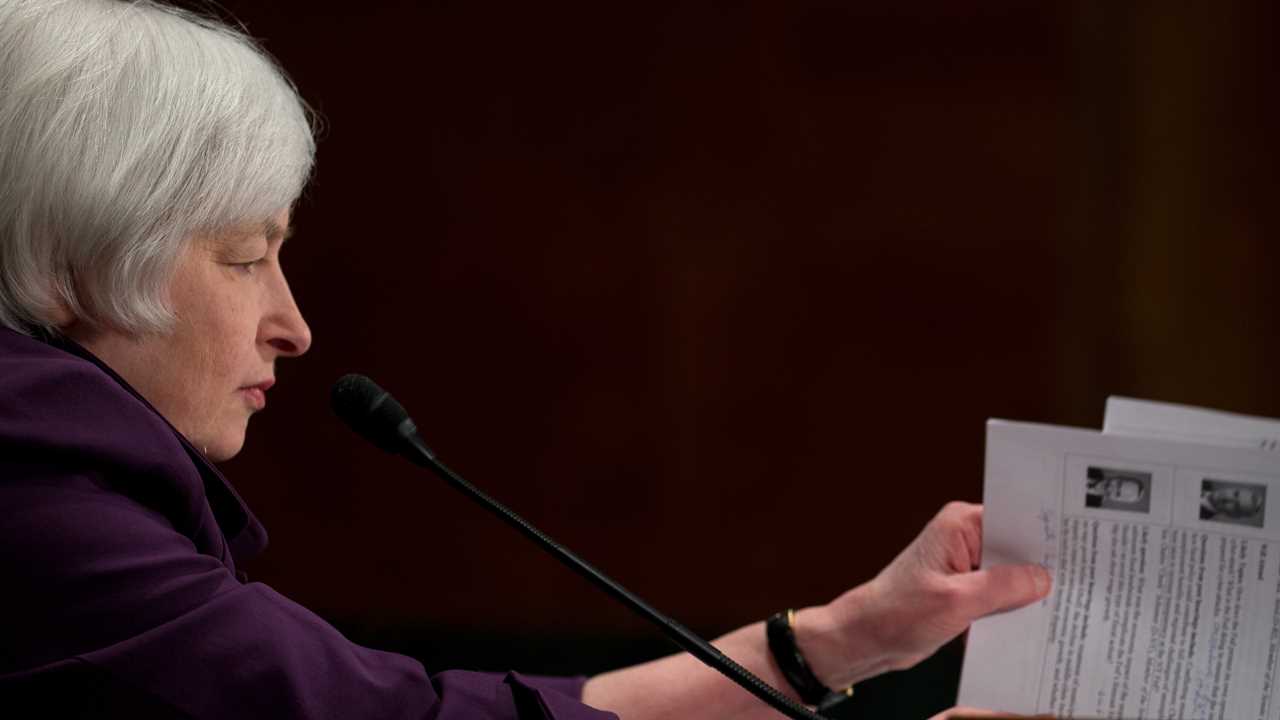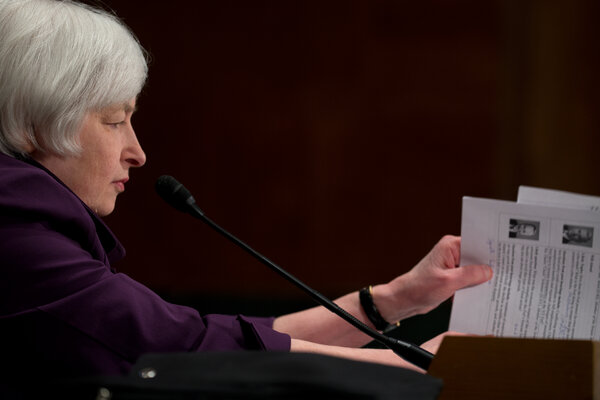

If confirmed by the Senate as Treasury secretary, Janet Yellen will be among the most accomplished people to take over the big office at 1500 Pennsylvania Avenue in the 231-year history of the department.
Few people in any era have served at the highest levels of economic policymaking for as long, and with as much distinction. Among other things, she will be the first person to have been the chief White House economist and head of both the Treasury and the Federal Reserve. At the Fed, she played a major role in engineering the longest economic expansion in American history, cut short only by the pandemic.
Americans should hope that she has gotten plenty of rest in the three years since leaving government, because the job she is set to soon occupy may be the hardest one yet.
Her biggest task will be to navigate the tricky economics and even trickier politics of generating a strong recovery out of the pandemic. A stalemate on Capitol Hill over pandemic relief creates the risk that the economy will dip back into recession in the months before a coronavirus vaccine is widely available. If no deal is reached before President-elect Biden is inaugurated in January, Ms. Yellen will probably play an important role in trying to push lawmakers to agreement.
The Treasury secretary acts as the United States’ chief financial diplomat, and in that role she will face the unenviable task of trying to reshape a world economic system that has been disrupted by the Trump administration’s trade wars and a bipartisan rise in distrust of China.
More broadly, the Treasury secretary job is more complex than simply acting as the country’s economist-in-chief. Ms. Yellen will be drawn into a wider range of policy areas, and into more intensive diplomacy and political maneuvering, than she has to date.
As important and powerful as the Fed is, in some ways it can resemble a university economics department more than a fast-paced center of policymaking. Ms. Yellen, like her predecessors, had the benefit of being able to spend long hours analyzing the state of the economy and debating the best course of policy, and precisely crafting every word of public statements.
Treasury secretaries, by contrast, have their fingers in a wide range of domestic and foreign policy. In recent weeks alone, the department announced it was imposing sanctions related to North Korea and Iran, introducing plans for how businesses will be taxed on their pandemic rescue loans and ruling on requirements for divestment of the social platform TikTok for national security reasons.
Ms. Yellen is no stranger to high-level politics and international diplomacy, but if confirmed, she will be more engaged than ever in trying to bend both domestic and international rivals to an administration’s will.
One particularly interesting area to watch will be the relationship between fiscal policy — the power to tax and spend, soon to be partly under Ms. Yellen’s stewardship — and her former domain of monetary policy, the power to adjust the supply of money. Those lines have become more blurred this year. The pandemic response has been organized as a joint effort between the Treasury, which is putting up billions of dollars in capital to support debt markets, and the Fed, which administers the programs and lends billions more from its own limitless balance sheet to make them more powerful.
But there have been clear schisms thus far. The Fed has been more inclined to structure the programs to help the economy more but with greater risk that the Treasury will lose money, while the Trump Treasury has been more cautious.
Meanwhile, the Fed is buying vast sums of Treasury bonds and keeping interest rates close to zero indefinitely, seeking to stimulate the economy — and effectively giving the government carte blanche to spend as necessary to contain the economic fallout of the pandemic. It raises knotty questions about just how independent the central bank is, and should be, from the rest of the government at a time of crisis.
Ms. Yellen will approach these questions steeped in the institutional values of the Fed, where she started her career as a young researcher. She has served as president of the San Francisco outpost of the central bank, as its vice-chair, and four years as its leader. She and Jerome Powell, the current Fed chair, were colleagues for many years. She entrusted him with much of the hard, unglamorous work of overseeing the central bank’s operations.
When she and Mr. Powell have the regular breakfasts and lunches that are typical for the occupants of their jobs, there will be an irony that she, as an economist, has a more conventional résumé for a Fed chair and he, a lawyer and former Wall Street and Treasury official, has a job history more typical of a Treasury secretary.
Still, expect her to push for more liberal use of emergency credit facilities to support the economy, while also maintaining a relatively traditional view of the importance of Fed independence and its ability to shape monetary policy without being second-guessed by political authorities. A Treasury secretary with less attachment to the Fed might take a more flexible view of the roles of the two organizations.
In that sense, the selection of Ms. Yellen tells us something significant about President-elect Biden’s priorities as he assembles his team — in particular, a view that what matters is not flash and dazzle, but attributes like credibility, seriousness and stature. If confirmed, Ms. Yellen will take office amid a mess of an economy, a polarized political environment and a frayed global economic system. She’ll need every ounce of those qualities.






